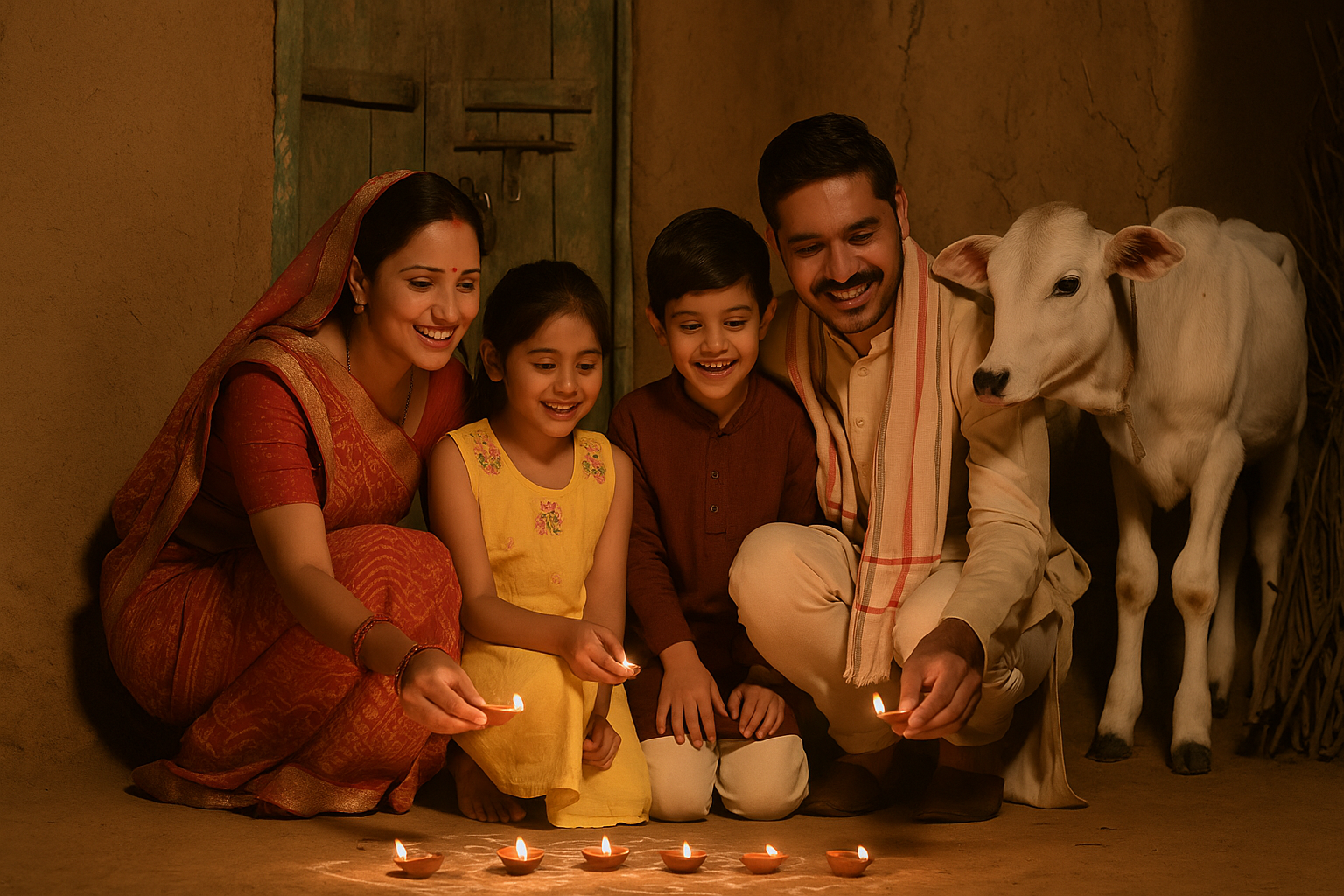🪔 Diwali: The Festival of Lights
Diwali, one of the most important festivals in Hindu culture, is celebrated over five days and holds immense religious, cultural, and social significance
Diwali, one of the most important festivals in Hindu culture, is celebrated over five days and holds immense religious, cultural, and social significance

Diwali, also known as Deepavali, is one of the most popular and widely celebrated ancient festivals in India. This vibrant festival symbolizes the victory of light over darkness, knowledge over ignorance, and good over evil. It's not just a Hindu festival; Sikhs, Jains, and Buddhists also celebrate it in various forms. Diwali brings families together, encourages generosity, and fills homes and hearts with joy. 🏠💖
At its core, Diwali represents spiritual victory. For Hindus, it marks the return of Lord Rama to Ayodhya after 14 years of exile and defeating the demon king Ravana. People welcomed him by lighting oil lamps (diyas) across the kingdom. For Jains, it commemorates the nirvana (liberation) of Bhagwan Mahavir. Sikhs celebrate Bandi Chhor Divas, the release of Guru Hargobind Ji and 52 princes from imprisonment. Each tradition adds depth to the festival's meaning. 🙏
Diwali usually falls between October and November, depending on the lunar calendar. It spans five days:
Preparations begin weeks in advance. Homes are cleaned thoroughly to welcome Goddess Lakshmi, the deity of wealth. People decorate their houses with fairy lights, diyas, rangoli (colorful patterns), and flowers. New clothes are purchased, and gifts are exchanged among family and friends. The act of cleaning and decorating is believed to invite prosperity and positive energy. ✨🧹🌸
Each region in India celebrates Diwali in its unique way, but certain rituals are common:
Diwali is a feast for the senses! Kitchens come alive with the aroma of traditional dishes:
Diwali is celebrated not just in India but globally wherever Indian communities reside. Countries like Nepal, Sri Lanka, Malaysia, Singapore, the UK, the US, Canada, and Australia host vibrant Diwali festivals. Public events, cultural performances, and community dinners mark the celebrations. It has become a symbol of multicultural harmony. 🌐❤️
While Diwali is a joyful festival, it's important to celebrate it responsibly:
In today's fast-paced world, Diwali serves as a reminder to pause, reconnect, and reflect. It fosters unity, forgiveness, and hope. Whether it's by lighting a lamp, offering prayers, or sharing a meal, the essence of Diwali lies in spreading light—within and around us. 💫
Diwali is not just a festival; it's a celebration of life, love, and light. It's an opportunity to express gratitude, celebrate culture, and build stronger bonds with our loved ones. Whether you're in a bustling Indian city or a quiet town overseas, the spirit of Diwali can be felt in the glow of a diya, the sweetness of a ladoo, and the smile of a loved one. 🥰🪔🎇
Wishing you and your family a very Happy Diwali! ✨🪔💛
Writer and content creator
Log in to share your thoughts and engage with other readers.